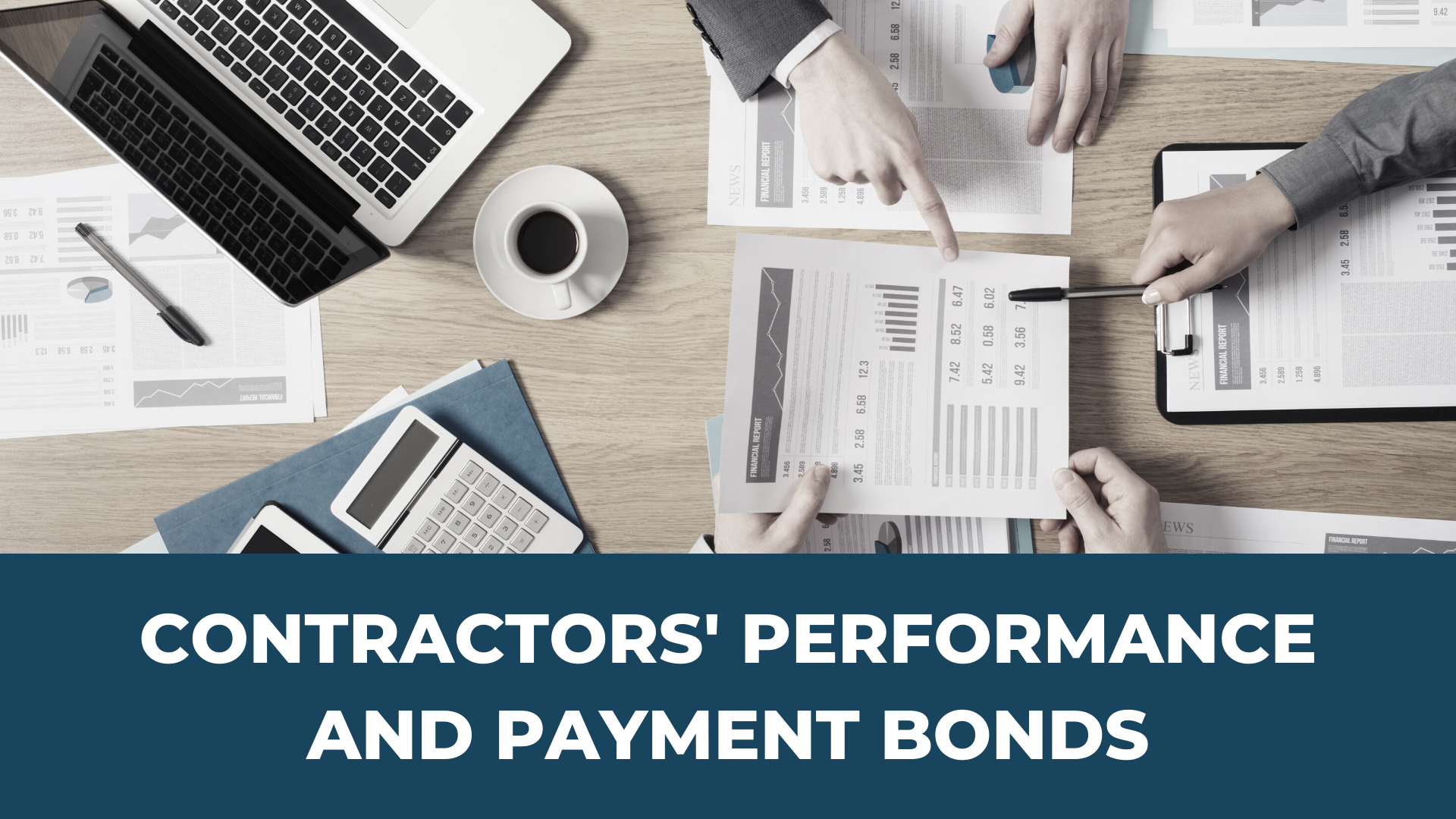What is a contractor Performance and Payment Bond?
Performance and Payment bonds ensure that a contractor completes a project, meets specifications, and provides payment to other parties on the job. The bond does not protect homeowners from poor workmanship or materials. Homeowners should check references to make sure a contractor has done good work previously before signing a contract or giving money upfront. You can also get several bids for work.
A contractor performance and payment bond, as the term itself, suggests, is a surety instrument that guarantees to the owner of a project that the licensed contractor for whom it has been taken out will satisfactorily complete contract works as specified in the contract document.
A contractor’s performance and payment bonds are normally required by construction owners who feel insecure about their contractors’ abilities to finish a job according to stipulations of contracts. The bonding commitment usually ensures prompt completion within prescribed deadlines so as not to affect other areas if any delays occur on part of the contractor.
The name “performance and payment bond” reflects two different kinds of liabilities under which the bonded company operates. In case the bonded company fails to complete the project on schedule, it is required to pay damages up to the penal sum of the bond.
The construction owner also has an option of canceling the contract with immediate effect if any delay on part of the contractor occurs. On failure to resume work within seven days following cancellation, certified claims are considered for payment under this bond.
Is a performance bond the same as a payment bond?
A performance bond is not the same as a payment bond. A payment bond provides for compensation to subcontractors and suppliers if the prime contractor fails to pay them for work done or goods delivered. Performance bonds ensure that the project will be completed according to certain specifications and timelines.
A payment bond, on the other hand, guarantees that all workers on a construction job will be paid according to law for their labor or services on a particular project. This means that if you are an employee of any of the contractors working at your job site and your employer doesn’t pay you what you’re owed under state wage laws, then you can file a claim with the surety company providing this bond you can get it made good.
Most bonds are bid bonds, payment bonds, or performance bonds. Performance bonds are required for certain projects by public agencies to ensure that the contractor completes the work as contracted and does not abandon the project without performing all of its obligations. This is considered a requirement by most public owners because it presents an added measure of protection for both the owner and the contractor.
What is a performance and payment bond and how does it protect the owner?
This type of contract requires the contractor to put up money that serves as security for their promise. The client can then draw up an agreement that provides for damages if this requirement is not met. If the construction company fails to fulfill its end of the deal, it pays out whatever amount was stipulated in the bond agreement. It ensures that contractors have enough capital available to cover expenses during lengthy projects and protects owners from cost overruns or delays.
The owner will normally be required to pay a small fee, typically between 1% and 5%, on top of the prime contract amount. This deposit creates an incentive for both parties to abide by contractual terms because it acts as collateral against any possible disputes or unforeseen circumstances that may arise.
The performance bond is a written agreement between a project owner and a contractor. It binds the contractor to perform his or her work in accordance with the contract specifications and conditions that were agreed upon when the contract was signed.
What is a construction payment bond?
A payment bond is a document that guarantees a willing party’s performance on a specific contract. The owner of a construction project is typically paid as different stages of the project are completed. Other construction professionals such as subcontractors and suppliers rely on this payment to cover their expenditures for materials and labor performed.
In some cases, however, an owner may not pay its contractors and suppliers. When this happens it is considered “payments under protest”. In these instances, payment bonds provide protection against such non-payment by guaranteeing that the contractor or supplier be paid for work already completed.
How long are payment and performance bonds good for?
A payment bond protects the owner or contractor from non-payment by the subcontractor, labor, and suppliers. The performance bond guarantees that the project will be finished in accordance with contract specifications by both parties.
Payment bonds generally have a term of one year after the last partial payment under its terms or completion of construction, whichever is sooner.
Performance bonds usually have a term of one year after project completion or final inspection, whichever is sooner. However, if there are latent defects in workmanship or materials which substantially impair either usefulness or value of the project at least six months’ notice must be given by the owner before the performance bond expires. It’s worth noting that some states allow even less than 6 months’ notice depending on the character of work involved in a particular contract.
